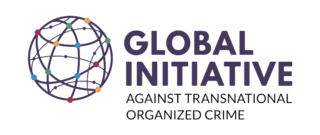 W
WOrganized crime is a category of transnational, national, or local groupings of highly centralized enterprises run by criminals to engage in illegal activity, most commonly for profit. Some criminal organizations, such as terrorist groups, are politically motivated. Sometimes criminal organizations force people to do business with them, such as when a gang extorts money from shopkeepers for "protection". Gangs may often be deemed organized crime groups or, under stricter definitions of organized crime, may become disciplined enough to be considered organized. A criminal organization can also be referred to as a gang, mafia, mob, ring, or syndicate; the network, subculture, and community of criminals may be referred to as the underworld. Sociologists sometimes define a "mafia" as a type of organized crime group that specializes in the supply of extra-legal protection and quasi-law enforcement. Academic studies of the original "Mafia", the Sicilian Mafia, which predates the other groups, generated an economic study of organized crime groups and exerted great influence on studies of the Russian Mafia, the Chinese Triads, the Hong Kong mafia, and the Japanese Yakuza.
 W
WCopyright infringement is the use of works protected by copyright law without permission for a usage where such permission is required, thereby infringing certain exclusive rights granted to the copyright holder, such as the right to reproduce, distribute, display or perform the protected work, or to make derivative works. The copyright holder is typically the work's creator, or a publisher or other business to whom copyright has been assigned. Copyright holders routinely invoke legal and technological measures to prevent and penalize copyright infringement.
 W
WDomestic terrorism or homegrown terrorism is a form of terrorism in which victims "within a country are targeted by a perpetrator with the same citizenship" as the victims. There are many definitions of terrorism, and none of them are universally accepted. The United States Department of State defined terrorism in 2003 as "premeditated, politically motivated violence perpetrated against noncombatant targets by subnational groups or clandestine agents, usually intended to influence an audience." There is no Federal criminal offense designated as domestic terrorism.
 W
WAn extrajudicial killing is the killing of a person by governmental authorities without the sanction of any judicial proceeding or legal process. They often target political, trade union, dissident, religious and social figures.
 W
WThe Global Initiative Against Transnational Organized Crime, sometimes shortened as Global Initiative, is an international non-governmental organization headquartered in Geneva. The organisation is composed of a network of law enforcement, governance and development practitioners, who share the objective of developing innovative strategies and responses to organized crime. In July 2020, the network counted 500 experts.
 W
WAn outlaw motorcycle club, commonly referred to as a biker gang, is a motorcycle subculture. It is generally centered on the use of cruiser motorcycles, particularly Harley-Davidsons and choppers, and a set of ideals that purport to celebrate freedom, nonconformity to mainstream culture, and loyalty to the biker group.
 W
WSan Uk Ling Holding Centre is a detention centre in Man Kam To, New Territories, Hong Kong. It is located in a remote area, a few hundred metres from the Man Kam To Control Point, a border crossing facility between Hong Kong and China. San Uk Ling Holding Centre opened in July 1979 to house illegal immigrants prior to their repatriation.
 W
WTransnational organized crime (TOC) is organized crime coordinated across national borders, involving groups or markets of individuals working in more than one country to plan and execute illegal business ventures. In order to achieve their goals, these criminal groups use systematic violence and corruption. Common transnational organized crimes include conveying drugs, conveying arms, trafficking for sex, toxic waste disposal, materials theft and poaching.
 W
WThe United Nations Convention against Transnational Organized Crime is a 2000 United Nations-sponsored multilateral treaty against transnational organized crime.